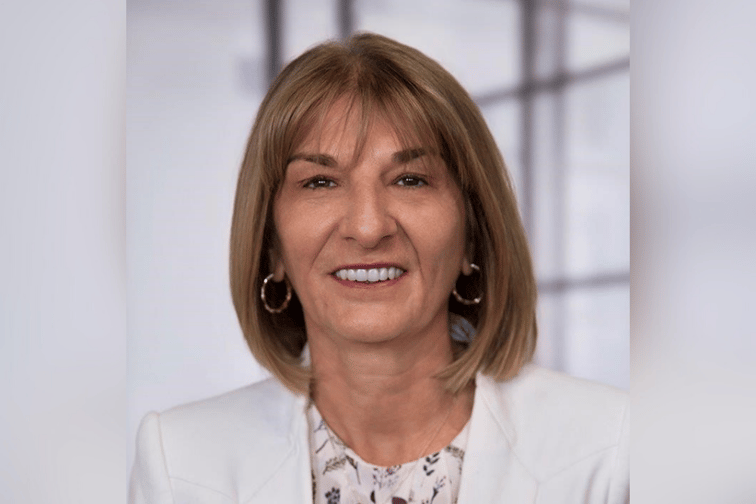

The capturing, processing and analysing of data are central to an insurance company’s business. Allianz, the global financial services and insurance company, aims to ensure every employee takes responsibility for the safety of customer data.
“Data is everybody’s business in my organisation,” said Katarina Dulanovic (pictured), general manager data office for Allianz Australia.
Dulanovic is a panellist at the upcoming 2022 ClaimsTech Summit Australia. The summit is the country’s leading ClaimsTech event putting the spotlight on the latest challenges in the sector. The summit also focuses on innovations and tech tools that can streamline claims handling, facilitate more effective communication with customers and achieve operational efficiencies.
Dulanovic’s panel brings together industry experts to discuss Leveraging data collection and analysis to increase productivity.
The Allianz data boss said the big difference today compared to years past is that there is so much more data available.
“With the technology advances like blockchain, the Internet of Things (IoT), social media and artificial intelligence (AI), we get much greater volumes and variety of data. This has been a significant change, we are now capturing data that hasn’t previously been available,” she said.
Today, insurance companies need to capture this information, she said, to leverage it and provide better customer outcomes.
“For example, Internet of Things data is not standard data, but it’s data that’s highly relevant to our industry,” said Dulanovic.
According to Oxford Languages, Internet of Things is “the interconnection via the internet of computing devices embedded in everyday objects, enabling them to send and receive data.”
She said driverless cars are a prime example of how IoT data is being used to help insurers make decisions. Dulanovic is just back from San Francisco where she was able to observe many driverless cars being tested on the streets, referred to ‘WayMo’.
However, Dulanovic said, a big challenge for insurers in Australia who want to use this data is the regulatory demands on usage of this type of data.
“Australia is still setting its standards around how this data can be used. For example, understanding how to use the data to develop more intelligence from a motor vehicle driver’s history, while also protecting the customer’s data, such as telematics,” she said.
Dulanovic said there are possible overseas regulatory models for Australia to follow.
“Being part of the global Allianz organisation we can leverage the great work being done in Europe where there are strong standards in place – especially around the use of ethical AI and using data in appropriate ways,” she said.
However, she said, Australia is making progress. In 2020, the Department of Industry, Innovation and Science launched the Artificial Intelligence Ethics Framework to guide businesses and governments to responsibly design, develop and implement AI.
“We are moving forward, but at a different pace than the rest of the world,” she said.
Dulanovic’s panel will also focus on predictive analytics. She said this can really help an insurance company in three areas:
“Predictive analytics can provide greater efficiency in claims handling, including pricing,” she said. “It can also support insurers’ ability to provide new products and services to customers based on the patterns and predictive nature of the data being used and it can help insurers grow and ensure that customers are getting the exact service they need.”
This is especially relevant, she said, in the complaints area.
“Predictive analytics can also help insurers understand the nature of complaints and what areas to improve to prevent future challenges, whether they’re about premium and pricing or the claims process,” she said.
Dulanovic said an American based insurance company called Lemonade is a good example of how data and technology can change a simple claims process.
“If a customer has a policy with Lemonade and has a motor claim, they can send photos of the accident using their app, receive a claim number, have the claim settled within minutes, and within hours the money is paid,” she explained.
Dulanovic said that issues around privacy and respecting personal information from customers hinge on being able to treat your data as an organisational asset.
Read next: What’s the "huge" opportunity in the claims area?
“The regulations and the privacy laws are really around protecting our consumers and ensuring any data is used responsibly. For predictive analytics, responsible use is based on a certain way of segmenting the data – it can be anonymised, without using names or addresses,” she said.
She said having strong data governance is another important way to protect customer information.
“While laws and regulations set the parameters for the treatment of data, strong data governance comes from the culture of the organisation, and really treating data as an organisational asset,” she said.
Dulanovic said regulations and standards are only one side of protecting customer privacy. Organizational culture is also very important.
“That’s the model we are applying in Allianz. We’re building a strong data governance culture where every individual in our organisation is accountable for ensuring that the data we collect is used in the right way,” she said.
“That’s really the main differentiator. It comes down to how well we are looking after our customers and their personal information, today and into the future,” said Dulanovic.
The 2022 ClaimsTech Summit Australia will take place at the Swissotel Sydney on March 03. The event will unite Australia’s top insurance companies and feature panel discussions, case studies and presentations addressing the most pressing issues in claims, with the goal of promoting innovation and adapting to the changing business environment. You can register here.
